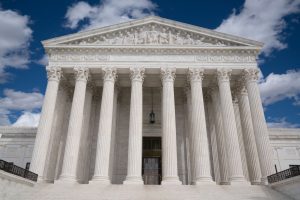The U.S. Supreme Court is considering a question that concerns Florida personal injury plaintiffs. Specifically, should the state’s Medicaid program be allowed to seek reimbursement for past medical care by siphoning personal injury lawsuit settlement funds that are expressly dedicated to future medical expenses? 
As our Fort Lauderdale personal injury lawyers can explain, this could impact how we as attorneys approach settlement negotiations.
The case that kickstarted the dispute in Gallardo v. Marstiller is a tragic one. A 13-year-old girl has been left in a persistent vegetative state after she was hit by a truck while getting off a school bus. She received a settlement of $800,000 against the owner of the truck, the driver, and the school board. (The cost of catastrophic injuries like this for someone so young can easily stretch into many millions of dollars over her lifetime.)
But then, the Florida Agency for Healthcare Administration imposed a lien on her settlement money, asserting that it was entitled to seize $300,000 of the money that was set aside for past and future medical expenses. The district court in Florida ruled against the state, arguing the federal Medicaid Act barred the state from being reimbursed for past paid medical expenses from the portion of the settlement that is set aside for future medical expenses. In the summer of 2020, the U.S. Court of Appeals for the 11th Circuit reversed in favor of the state’s action.
It was appealed to the U.S. Supreme Court, which heard oral arguments in January and is expected to rule in the coming months.
This was expected to be a fairly straightforward question of statutory interpretation on what state Medicaid programs should receive from third-party litigation – but the high court was surprisingly divided. Most justices appeared to agree that where the state had paid for injuries that the beneficiary suffered, it had a right to take from the part of the settlement/damages that is apportioned to past medical expenses. The problem arises, though, when the settlement reached for past medical expenses isn’t actually enough to repay Medicaid for what it paid. So then is the state also allowed to take part of the settlement set aside for future medical expenses?
Federal statutory guidance on this is a bit confusing. For starters, Medicaid is responsible for paying medical expenses. It does not loan money so they can be reimbursed later. So for the most part, the state isn’t allowed to recover its expenses from the person who was injured. But the game changes when a third-party was responsible for the injury and thus is liable to pay for the injured person’s expenses. In that instance, the state can seek reimbursement from that third party, per 42 USC 1396k(a)(1)(A). The way that statute is worded though, it might seem to allow for collection for past payments from a future medical expense fund. However, a bit further down, the provision seems to indicate a narrower definition.
The justices focused a lot of analysis on the statutory language. Several of their initial comments seeming to suggest that the language supports the state’s view that it can collect on all medical expense payouts, whether for past or future medical expenses, up to the amount the state has paid. However, as the discussion progressed, a number of the justices seemed to be dissatisfied with the broad implications of the state’s legal interpretation. By all accounts, Sotomayor appeared firmly against the state’s position, but how the other justices will decide is still up in the air.
Although it’s understood that the state has the right to subrogation and recovery of payments it’s already made, the broader interpretation could require personal injury lawyers representing Medicaid-covered clients to negotiate for higher reimbursement of damages dedicated to all medical expense reimbursements.
Call Fort Lauderdale Injury Attorney Richard Ansara at (954) 761-4011. Serving Broward, Miami-Dade and Palm Beach counties.
Additional Resources:
 Broward Injury Lawyer Blog
Broward Injury Lawyer Blog



